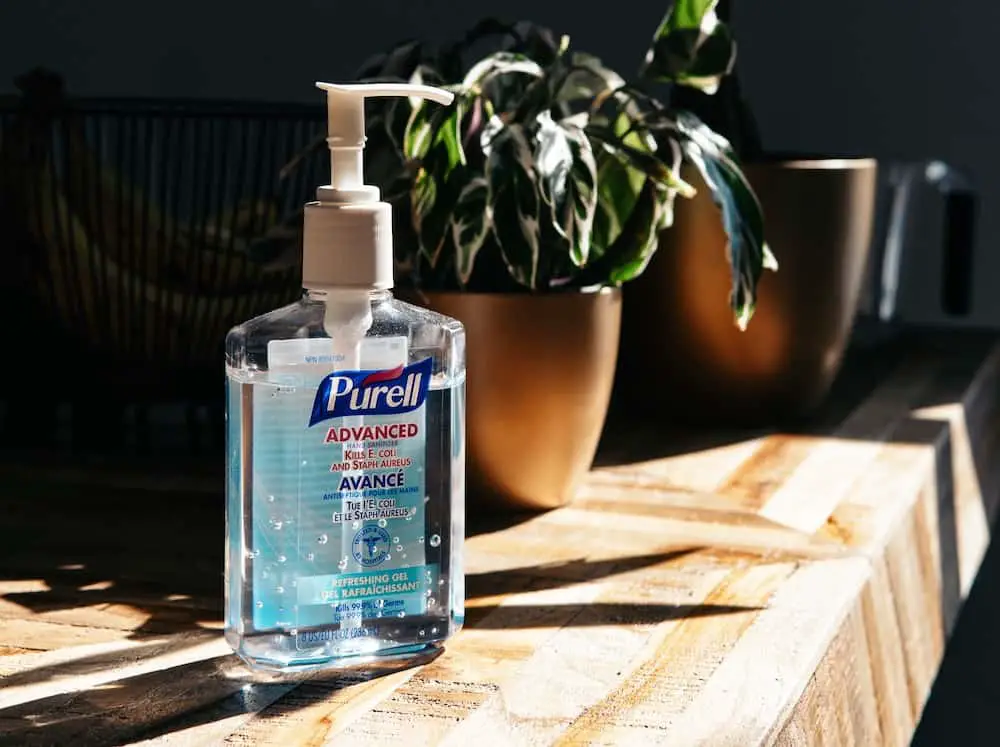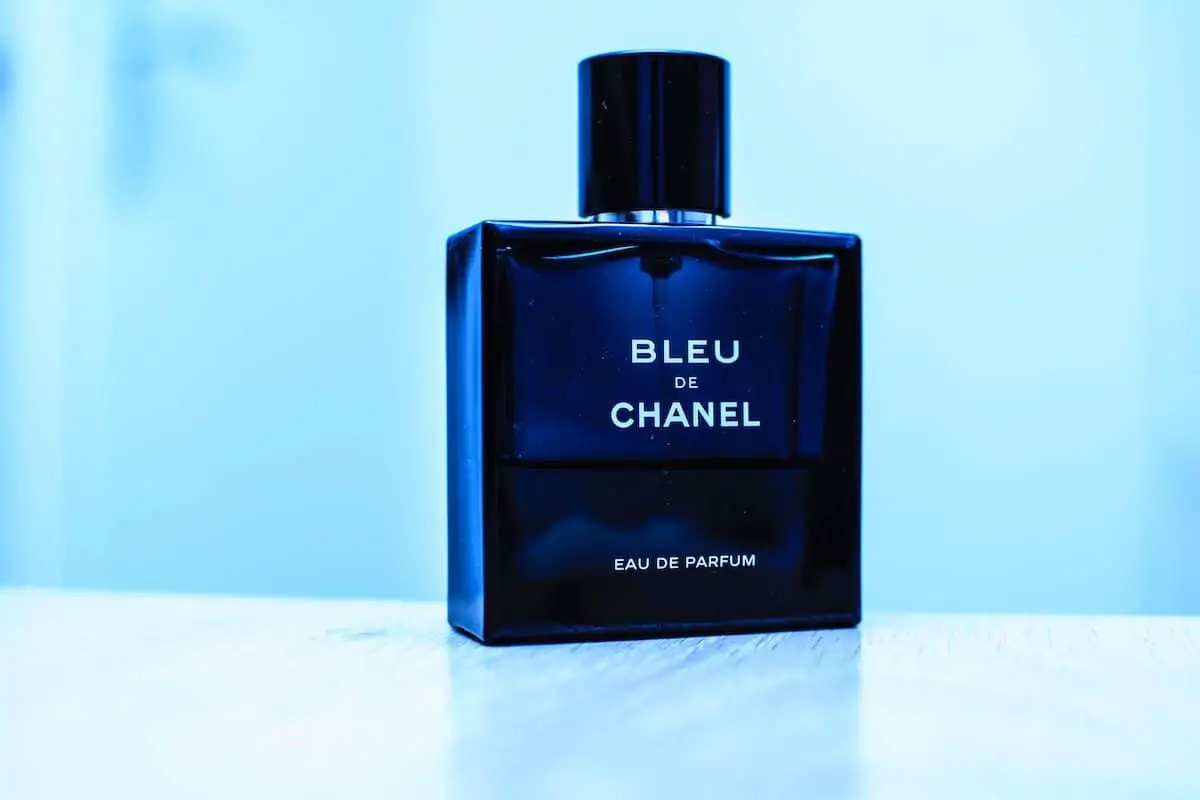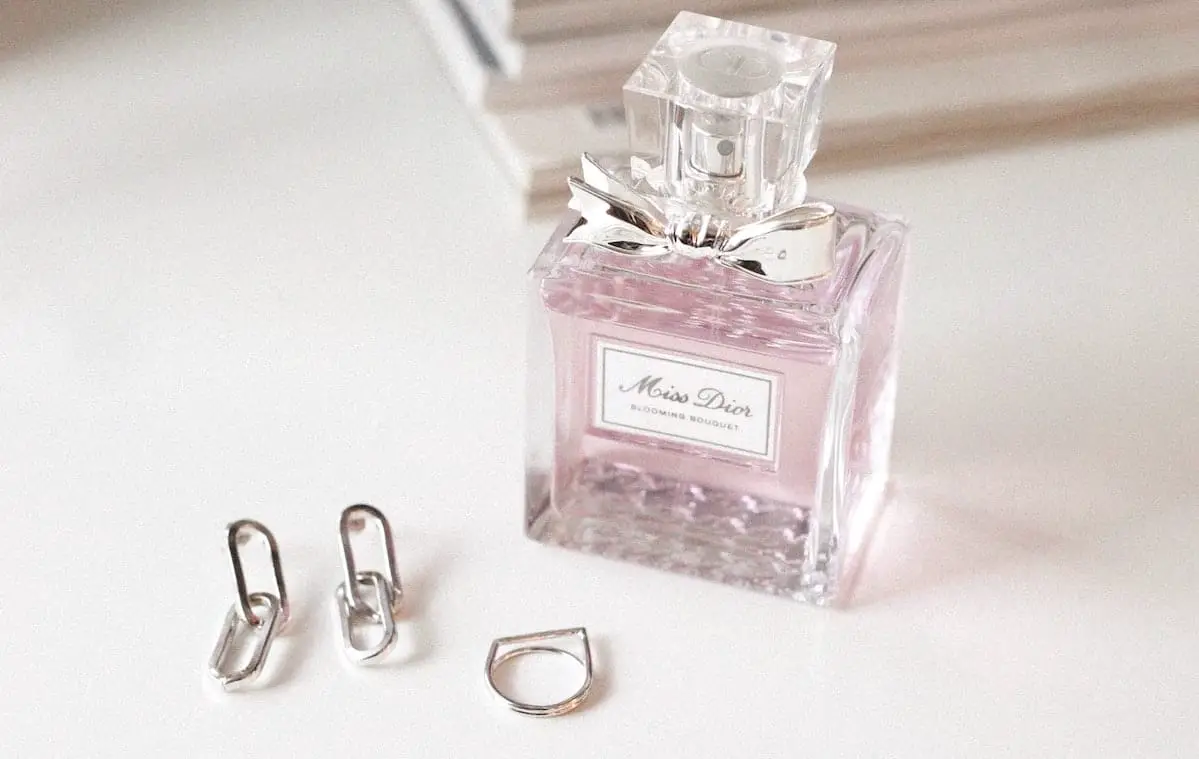Does Perfume Disinfect? Read THIS Before You Use It!
Most modern perfumes today contain alcohol in it. In fact, Eau de Toilette and Eau de Cologne often contain more than 60% alcohol! That often makes me wonder, does perfume disinfect? Can it be used as a hand sanitizer or a disinfectant in general?
Perfume can disinfect as it usually contains more than 60% ethyl alcohol. However, perfume should only be used to disinfect non-critical items such as table-tops, metal or other external surfaces, etc. that come in contact with intact skin BUT NOT with mucous membranes or open wounds.
It’s quite a conundrum, isn’t it! I think it’s important to delve deeper into this to address some of the most common concerns. So, let’s get started!
Can you Use Perfume to Disinfect?
With the recent spread of infections during the pandemic, one thing that has become quite common is the use of disinfectants. But, there are times when you either run out of or simply don’t have access to a disinfectant! What do you do in such a situation? Can you use perfume to disinfect?
You will often hear opposing views to this question. However, in order to truly understand the answer to this question, let us first understand what type of substance can serves as a good disinfectant –
Properties of an Ideal Disinfectant
Each chemical has certain properties. Some are favorable while others may not be. Thus, for perfume (or any other mixture) to serve as a disinfectant, it needs to have certain favorable properties.
In fact, the Centers for Disease Control and Prevention (CDC) has laid out the guidelines for disinfectants along with the list of properties for an ideal disinfectant. These are as follows –
- Broad Spectrum – should have a wide anti-microbial spectrum (meaning, it should act against a wide range of microbes)
- Fast Acting – should be able to act in a short period of time and produce a rapid kill on micro-organisms.
- Non-Toxic – a disinfectant should obviously not be harmful to the person using it.
- Not Affected by Environmental Factors – should be compatible with soaps, and detergents, and should be active in presence of organic matter (eg. blood and other body excretion)
- Surface Compatibility – should not corrode metallic or other surfaces or cause deterioration of cloth, rubber, plastic, or other commonly used materials.
- Residual Effect on Treated Surfaces – should leave an antimicrobial film on treated surfaces.
- Easy to Use – with clear label directions.
- Odorless – should have a pleasant odor or no odor at all.
- Economical – should not be prohibitively high in cost
- Solubility – should be soluble in water
- Stability – should be stable in concentrate and use-dilution
- Cleaner – should have good cleaning properties
- Environmentally friendly – should not damage the environment on disposal.
Any disinfectant needs to have the above mentioned properties. Additionally, it should not have any properties that can harm the user or the people around the user.
What Material does Perfume Contain?
Now that we know what properties should a chemical mixture display in order for it to be okay for use as a disinfectant, let’s look at what exactly do perfumes contain.
Most perfumes are usually made of perfume oils dissolved in perfumers alcohol. The perfume oil varies in the range of 3% to 30% whereas the alcohol levels vary from 60% to 85%. Some perfumes also use water instead of alcohol.
Furthermore, perfumers alcohol largely contains denatured Ethyl Alcohol (or Ethanol), Isopropyl Myristate, and Monopropylene Glycol. Perfumers alcohol usually contains more than 95% of Ethyl Alcohol.
So, Can Perfume Disinfect?
Based on the ethyl alcohol concentration present in most perfumes, it is safe to consider perfumes as effective disinfectants.
That said, let’s compare how perfume stacks up against an ideal disinfectant.
Perfume vs Ideal Disinfectant
| S. No | Ideal Disinfectant Properties | Does Ethyl Alcohol Exhibit this? | Does Perfume Exhibit this? |
|---|---|---|---|
| 1 | Broad Spectrum | Yes | Largely Yes. |
| 2 | Fast Acting | Yes | Yes |
| 3 | Non-Toxic | Yes | Yes |
| 4 | Not Affected by Environmental Factors | Yes | Yes |
| 5 | Surface Compatibility | Yes | Yes |
| 6 | Residual Effects on Treated Surfaces | Yes | Yes, may even leave traces of oil |
| 7 | Easy to Use | Yes | Yes |
| 8 | Odorless | Yes | Yes, has pleasant odor |
| 9 | Economical | Yes | Yes (usually) |
| 10 | Solubility | Yes | Yes |
| 11 | Stability | Yes | Yes |
| 12 | Cleaner | Yes | Yes |
| 13 | Environmentally Friendly | Yes | Yes |
It is important to note that Ethyl Alcohol is the biggest chemical component present in perfumes.
Furthermore, ethyl alcohol, when used in concentrations of 60%-80%, is a highly potent virucidal and bactericidal agent. This means it is known to be very effective against various common viruses and bacteria. Ethyl Alcohol acts as a dehydrating agent and denatures the proteins present in the micro-organisms destroying their cellular structure.
Caveats to Using Perfume as Disinfectants
Even though we have established that perfumes can function as a disinfectant, however, there are some caveats to be aware of when using perfume for disinfection purposes.
1. Don’t Use Perfume Over Open Skin or Wounds
It is highly recommended to NOT use perfume over open skin, wounds, or other mucous membranes.
One reason is that it can cause a severe burning sensation or heat on the wound or area of cut skin.
More importantly, while ethyl alcohol present in the perfume will indeed help to kill germs, but ethyl alcohol will also damage the tissues on the open wound or skin cuts. Such a reaction can actually lead to a delay in the natural healing process.
2. Don’t Use Perfume for Sterilization
Make sure that you don’t use perfume for sterilization of an object or any medical equipment (such as thermometers).
While ethanol present in the perfume can kill most germs and micro-organism, certain spores and hepatitis A or polio causing viruses are immune to ethyl alcohol. Thus, using perfume or ethanol for sterilization may not be the most effective.
3. Consider the Cost of Perfume
Lastly, it is important to consider the cost of the perfume being used for disinfection. A good perfume can often cost hundreds of dollars. Additionally, there is no monetary value to can be put on the emotional connection with your perfume.
An easier and more cost-effective way to disinfect would be the use of water and soap! Using water and soap will not only save you extra dollars but is also easily accessible!
Can Perfume Kill Bacteria?
Since most alcohol-based perfumes contain 60%-85% ethyl alcohol, perfumes are effective in killing common forms of bacteria. Ethyl alcohol is a common disinfectant known to have bactericidal properties.
Furthermore, ethyl alcohol is also known for its virucidal properties (meaning – it has the ability to render a virus inactive). Thus, not only are most alcohol-based perfumes effective against bacteria, but also against virus and other forms of micro-organism.
Ethyl alcohol, used to make perfume, acts through a process known as denaturation. The alcohol molecules bond and rupture the outer membrane of the cell of the micro-organism exposing the contents inside the cell – including some critical components – killing the micro-organism in the process.
However, in a recent study done by the Institute of Hygiene and Environmental Medicine, Germany on the Efficacy of Ethanol against Viruses, it was observed that Ethanol was found ineffective against Polio-virus, Calci-virus (FCV), Hepatitis A virus (HAV), and foot and mouth virus (FMDV).
Can Perfume be Used as a Hand Sanitizer?
Perfumes can be used as a hand sanitizer as it is effective in disinfecting against most common types of micro-organisms. However, make sure to use an alcohol-based perfume. Eau de Cologne, Eau de Toilette and Eau de Parfum are all effective as hand sanitizer as it contains over 60% ethyl alcohol.
That said, if you do plan to use perfume as a sanitizer, you may also need to keep in mind that the amount of perfume you will need will be much higher than the amount of hand sanitizer you will end up using. Thus, using perfume as a hand sanitizer will definitely not be a cost-effective solution.
Furthermore, when using perfume as a hand sanitizer, do consider the fact that perfumes also contain a certain amount of oil as compared to hand sanitizers. Thus, a perfume is likely to leave an oily residue after its use on your palms.
It is also important to note that excessive use of perfume over a certain part of your body can lead to drying of the skin and ultimately may cause topical dermatitis.
Can you Spray Perfumes on Wounds?
Do not spray perfume on open wounds or cuts. While perfume may kill the micro-organisms present on the wound, it will also damage the tissues around the wound thereby further delaying the healing process.
Most people tend to spray or apply alcohol on open wounds and cuts. This often leads people to incorrectly believe that perfumes can also be used on open wounds or cuts.
There are several reasons why you should not be using perfume on your wounds. Some of them are mentioned below –
1. Perfume Damages the Tissues
While it is true that the ethyl alcohol present in the perfume does in fact kill most germs, the same ethyl alcohol is also known to damage the tissues around the wounds that are responsible for the healing of the wound!
A research study published in the American Journal of Physiology concluded that ethanol exposure impairs angiogenesis and the proliferative phase of wound healing!
“Angiogenesis” basically refers to the development of new blood vessels whereas the “proliferative phase of wound healing” means the process of rebuilding or recovery of the wound.
Thus, it is of utmost importance, that ethyl alcohol or perfume is not used on any wound.
2. Perfume Oils can Cause Infection on Wounds
Another factor that one needs to consider is that perfumes contain not only ethyl alcohol, but also other perfume oils and essential oils.
So, even though the ethyl alcohol may clean the wounds of any germs, once ethyl alcohol evaporates, it leaves traces of perfume oil on the wound!
This can serve as a perfect growth culture for micro-organisms and there are chances that your wound may get infected!
3. Perfume Causes Burning Sensation on Wounds
In addition to the above factors, one also needs to be cognizant of the fact that using perfume on wounds or cuts can lead to extreme burning sensation and pain.
So, even if you don’t intend to use perfume on wounds, ensure that you stay away from perfumes if you have had some cuts or burns in your upper body area.
Can you Use Cologne to Disinfect Clothes?
As we have learned so far, perfumes can serve as a disinfectant. However, if you are planning to disinfect your clothes or bed linens using cologne or other forms of perfume, it is probably not a good idea!
It is not a good idea to use cologne or other forms of perfume to disinfect clothes. The amount of perfume needed to disinfect even a single piece of clothing would far exceed the cost-benefit value. It is simply not viable to disinfect clothes using a cologne.
A better way to disinfect clothes would be to rinse them in water along with any form of soap or detergent.
Image Credit for the Featured Image of this post to Laura Chouette




![What is Hair Perfume? [Should You Even Buy It!]](https://styleuphq.com/wp-content/uploads/2021/07/Woman-applying-perfume-on-her-hair-2-1200x800.jpg)

![How to Refill Perfume Bottle at Home? [Complete Guide!]](https://styleuphq.com/wp-content/uploads/2021/10/pexels-mart-production-8450469-optimized.webp)
![What Does Perfume Taste Like? [We Tested It Out!]](https://styleuphq.com/wp-content/uploads/2021/04/man-gazing-bottle-perfume-isolated_light-1200x800.jpg)